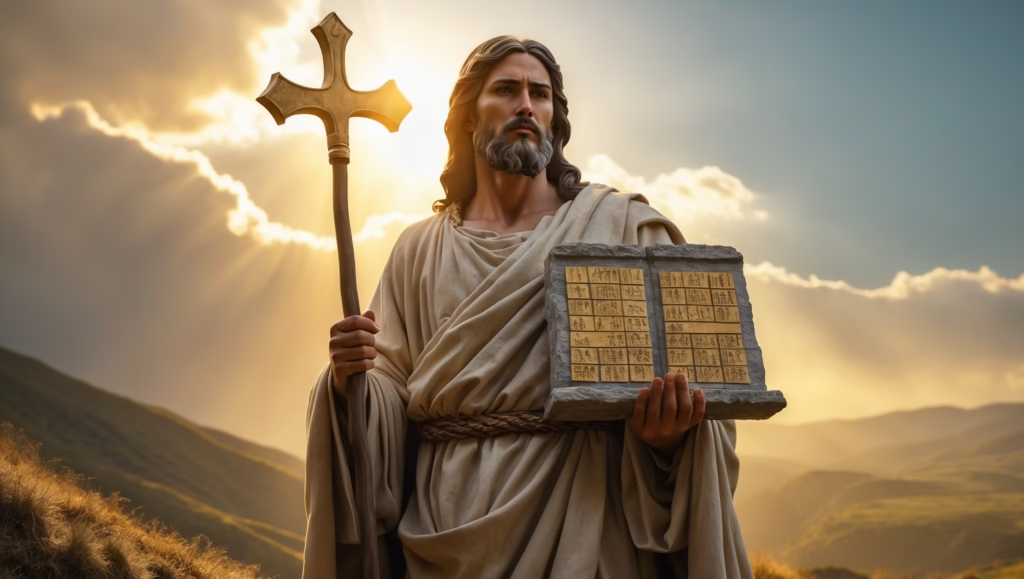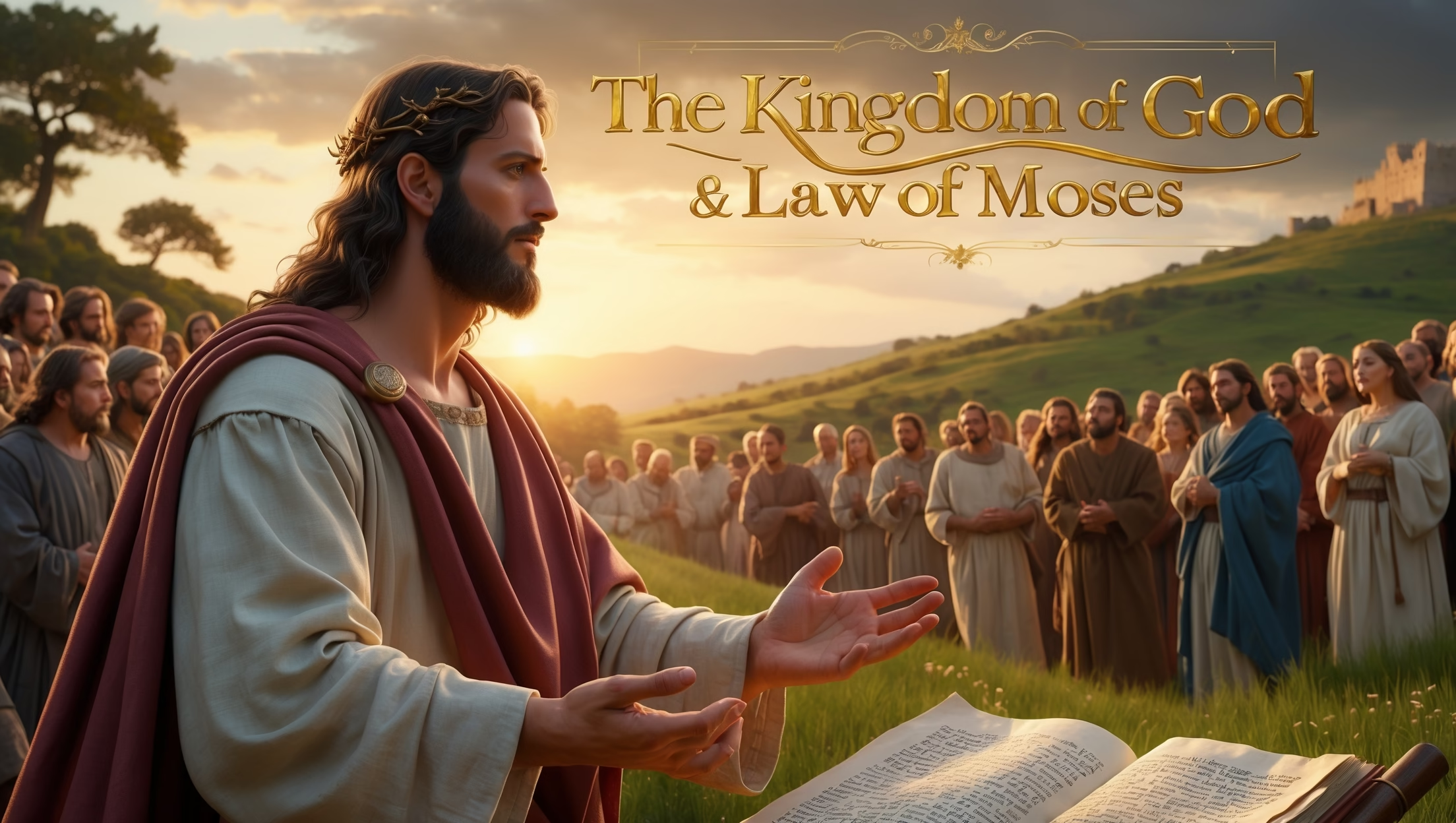Not of This World, Yet Transforming This World
When Jesus stepped onto the public stage in Galilee, His first proclamation was striking: “The time is fulfilled, and the kingdom of God is at hand; repent and believe in the gospel” (Mark 1:15). This was no side topic—it was His central message, repeated over 100 times in the Gospels.
Yet, many misunderstand the Kingdom. Is it heaven? The church? Social justice? Political reform? Jesus’ teaching reveals something far richer: the Kingdom is God’s reign breaking into human history through His Son.

The “Already / Not Yet” Kingdom
One of the greatest mysteries in Jesus’ teaching is the timing of the Kingdom. The New Testament presents it in two stages:
- Already Present — Jesus declared that the Kingdom was “in your midst” (Luke 17:21). His miracles, teachings, and authority were signs that God’s reign had arrived in Him.
- Not Yet Complete — At the same time, He taught His followers to pray, “Your kingdom come” (Matthew 6:10), looking ahead to the day when He will return in glory (Matthew 25:31–34).
This creates a tension: we live between two worlds—the present broken age and the dawning new creation. We taste the Kingdom now but await its fullness.
Inaugurated and Consummated
Theologians often describe this as inauguration at Jesus’ first coming and consummation at His second.
- Inauguration — The cross and resurrection marked the decisive victory over sin and Satan. God’s reign entered human hearts through the gospel.
- Consummation — When Christ returns, every enemy will be defeated, death destroyed, and creation renewed.
This reality makes Christian hope both urgent and unshakable.
The Kingdom’s Paradoxical Nature
Jesus often described the Kingdom with images that combined hiddenness and power.
- Yeast (Matthew 13:33) — Working invisibly yet transforming the whole lump of dough.
- Mustard Seed (Mark 4:30–32) — Starting small but growing into something expansive and sheltering.
The Kingdom is present in ways the world often overlooks—through acts of mercy, faithful witness, and unseen spiritual transformation—yet its influence is unstoppable.
Radical Kingdom Values
Life under God’s reign turns the world’s priorities upside down.
- Blessed are the poor in spirit (Matthew 5:3) — True life begins not with self-reliance but with humble dependence on God.
- Greatness through service (Mark 10:42–45) — In the Kingdom, power is expressed through sacrificial love, modeled by Christ who gave His life as a ransom for many.
These values are not mere ideals—they are commands for Kingdom citizens here and now.
Ethical Implications of Kingdom Living
- Prayer — “Your kingdom come” is a surrender of our agenda to God’s will on earth (Matthew 6:10).
- Mission — The risen King commissions His people to bear witness “to the ends of the earth” (Acts 1:8). Proclaiming the gospel is advancing the Kingdom.
Modern Relevance: Confronting Two Extremes
The Kingdom challenges:
- Secular Materialism — Rejecting the idea that life is measured by possessions or pleasure.
- Religious Legalism — Showing that entry into God’s reign is not earned by law-keeping but granted by grace.
It transcends political agendas and refuses to be reduced to earthly programs.
Jesus and the Law of Moses
“I Came Not to Destroy but to Fulfill” (Matthew 5:17)
If the Kingdom was Jesus’ central proclamation, the Law of Moses was the cultural and spiritual framework in which He preached. The Torah—God’s covenant law given to Israel—shaped every aspect of Jewish life. Many expected the Messiah to either strictly enforce it or abolish it. Jesus did neither.
Instead, He declared, “I have not come to abolish them but to fulfill them.” His relationship to the Law was one of completion—bringing it to its intended goal.
Threefold Fulfillment
1. Moral Law (The Ten Commandments)
Jesus didn’t weaken the moral law—He intensified it. In the Sermon on the Mount, anger becomes murder in the heart (Matthew 5:21–22), lust becomes adultery in the heart (Matthew 5:27–28).
He also summarized the law’s moral essence as love—love for God and neighbor (Matthew 22:37–40).
2. Ceremonial Law (Sacrifices & Cleanliness)
The sacrifices, priesthood, and purity rituals were shadows pointing to Christ. In His death, the ultimate sacrifice was offered “once for all” (Hebrews 10:1–14).
Jesus even declared all foods clean (Mark 7:19), signaling that ritual boundaries were giving way to the reality they foreshadowed.
3. Civil Law (Israel’s Theocracy)
The legal system governing Israel’s nationhood under God was bound to the old covenant. With the coming of the new covenant (Hebrews 8:13), civil laws tied to Israel’s theocratic identity were fulfilled and set aside. Jesus affirmed rightful civic authority: “Render to Caesar the things that are Caesar’s, and to God the things that are God’s” (Matthew 22:21).
Controversial Reinterpretations
Jesus’ teaching often surprised—and scandalized—His contemporaries:
- Sabbath — “The Sabbath was made for man, not man for the Sabbath” (Mark 2:27). The day of rest serves human need, not oppressive legalism.
- Purity Laws — He prioritized inward purity over ceremonial washing (Matthew 15:10–20).
- Divorce — He restored the original creation design for marriage (Matthew 19:3–9).
These were not acts of law-breaking, but of bringing the law to its true intent.
The Law as a Tutor to Christ
Paul captures the Law’s ultimate purpose: “The law was our guardian until Christ came” (Galatians 3:24). It revealed God’s holiness, exposed human sin, and pointed toward the need for a Savior.
With Christ’s coming, the law’s role as tutor gives way to the reality of grace—yet its moral wisdom continues to guide Kingdom living.
Conclusion: The King Who Fulfills the Law
The Kingdom of God is inseparable from its King, and the King is inseparable from the Law He fulfilled. Jesus doesn’t invite us into lawless freedom, nor into crushing legalism, but into a Spirit-empowered obedience that reflects God’s character.
In Christ, the promises of the Kingdom and the purposes of the Law converge. He reigns as the Law-fulfilling King, calling His people to live now under His gracious rule—awaiting the day when His Kingdom comes in power and glory.








